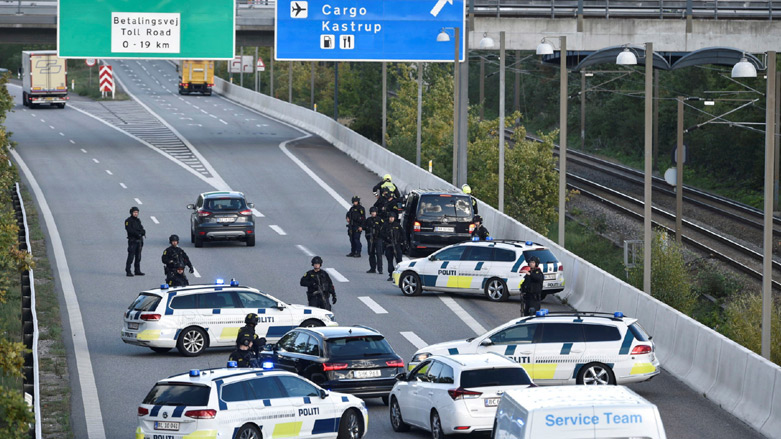US reaffirms next phase of Iran sanctions, hails Danish action on Iranian terrorism

WASHINGTON DC (Kurdistan 24) – The US is “fully committed to enforcing all of our sanctions” on Iran, the State Department Deputy Spokesperson, Robert Palladino, stated on Tuesday.
After attacking Kirkuk last October, Baghdad began shipping Kirkuk oil by truck to Iran. Previously, it had been going to Turkey through the Ceyhan pipeline, which passes through the Kurdistan Region.
Were Iraq to continue shipping oil to Iran, it would be in violation of US sanctions on Iran’s energy sector that are set to take effect next week, on November 5.
Reportedly, Baghdad has reached an understanding with Erbil to return to using the Ceyhan pipeline, send the oil to Turkey, and stop trucking it to Iran.
Palladino declined to comment directly on any understanding between Baghdad and Erbil, although Reuters reported earlier that the US had pressed Iraq to cease its exports to Iran and redirect the oil to Turkey through the Kurdistan Region.
He did, however, reaffirm that the US “goal remains to get to zero oil purchases from Iran as quickly as possible.”
“We are determined to implement our policy of maximum pressure on Iran,” Palladino continued.
However, there will be a provision for exempting countries that now import Iranian oil if they make a noteworthy effort to reduce such imports. The State Department calls this accommodation “significant reduction exemptions,” or SREs.
Pressed to explain whether specific countries, like India or South Korea, might qualify for SREs, Palladino declined to do so.
Also on Tuesday, Secretary of State Mike Pompeo tweeted his support for Copenhagen’s announcement that it had disrupted an Iranian intelligence plot to assassinate a dissident living in Denmark.
We congratulate the government of #Denmark on its arrest of an Iranian regime assassin. For nearly 40 years, Europe has been the target of #Iran-sponsored terrorist attacks. We call on our allies and partners to confront the full range of Iran’s threats to peace and security.
— Secretary Pompeo (@SecPompeo) October 30, 2018
The Danish intelligence chief explained that the plot targeted a senior member of the Arab Struggle Movement for the Liberation of Ahvaz—the capital city of the province of Khuzestan in southwestern Iran, which has a large Arab population.
The discovery of the plot led to a massive manhunt that spilled over into Sweden, where a Norwegian citizen of Iranian origin was arrested on October 21 and extradited to Denmark.
Copenhagen also recalled its ambassador from Tehran and called for new EU sanctions against Iran.
Last November, an Ahvazi opposition figure was murdered in the Netherlands.
On September 22, the 28th anniversary of Saddam Hussein’s attack on Iran, precipitating an eight-year-long war, a military parade in Ahvaz was attacked, and 25 people killed, including IRGC soldiers. Both the Islamic State (IS) and an Ahvazi liberation movement claimed responsibility.
On October 1, Iran fired six missiles at what it said were IS targets in eastern Syria, but they did no damage, according to Col. Sean Ryan, Spokesman for the US-led coalition against IS.
The assassination plot in Denmark actually arose out of the attack on the Ahvaz parade. Shortly thereafter, Danish police noticed a stolen car with Swedish plates outside the home of the Ahvazi dissident.
That triggered a massive manhunt, culminating in the arrest of the Iranian-born Norwegian ten days ago.
In late June, French and Belgium police disrupted a plot to bomb an Iranian opposition rally in Paris. In that case, authorities were able to arrest both the individuals who were to carry out the bombing, as well as an Iranian intelligence operative, posted as a diplomat to Iran’s embassy in Vienna.
Almost certainly, other persons are involved in the latest plot as well, but Danish authorities have not mentioned any suspects beyond the assassin himself.
Editing by Nadia Riva
